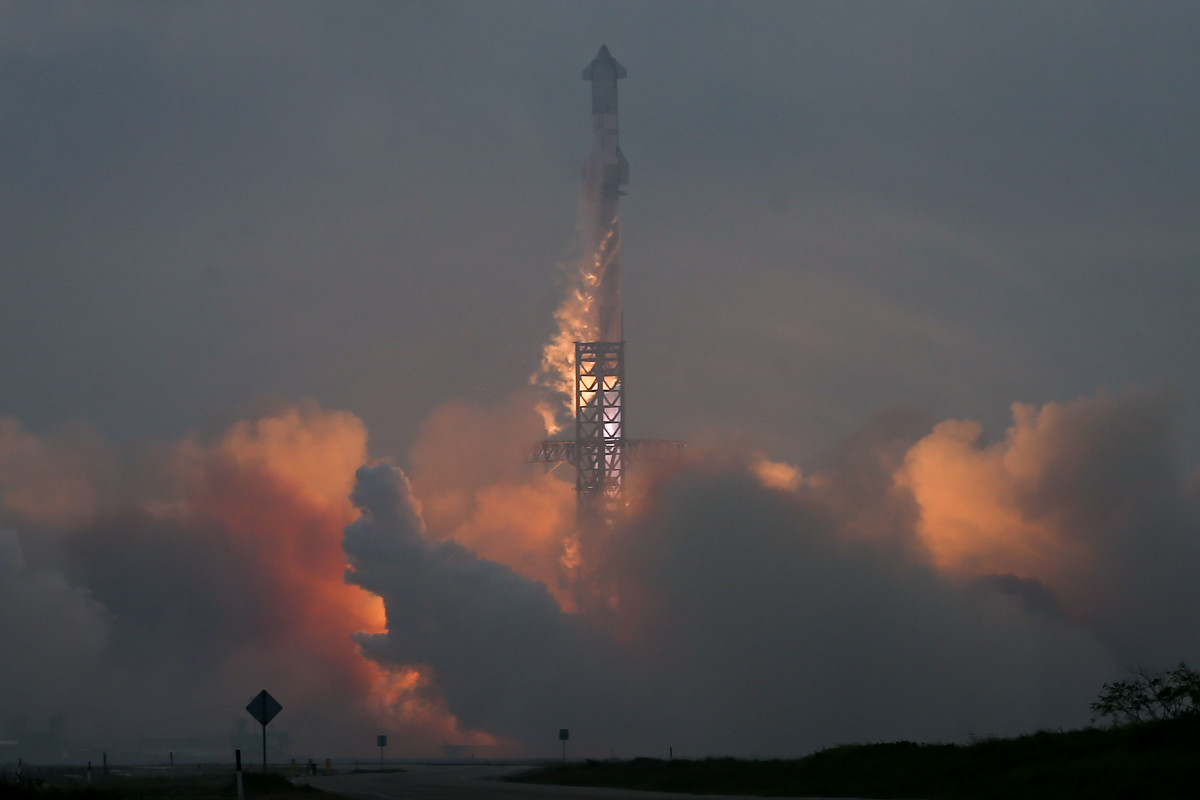
Fast Facts
- Around $300 billion has been invested in space companies over the past decade, according to Space Capital.
- Analysts expect the industry to be bringing in $1 trillion in annual revenue by 2040.
- TheStreet sat down with Chad Anderson, managing partner of Space Capital, who explained that investing in space isn't as high risk as people may think.
Perhaps best exemplified by the Elon Musk-led SpaceX, the private space industry has been growing recently.
There were 223 rocket launch attempts globally in 2023, according to Space Works, a 20% increase over the 186 launches in 2022. In 2019, there were only 102 rocket launches.
SpaceX is leading that growth — the company launched 26 missions in 2020, 31 in 2021, 61 in 2022 and just about 100 in 2023. Musk has said that SpaceX hopes to launch 144 times in 2024.
As the number of rockets aiming for orbit has increased, so too have the investments pouring into the industry, in addition to the potential payoff.
Related: Watch Elon Musk's SpaceX launch Starship: Third time's the charm
Space Capital, a venture capital firm that invests in the space economy, noted recently that nearly $300 billion has been invested in around 2,000 different space-related companies over the past decade.
Citigroup analysts said in 2022 that they expect the space industry to reach $1 trillion in annual revenue by 2040, a forecast that was predicated on a reduction in the cost of launches.
Space Capital managing partner Chad Anderson told TheStreet that space companies are much more than rocket launches and satellites, calling space-based technologies the "invisible backbone that powers the modern global economy."
According to Anderson, the notion that investing in space is a high-risk venture, due both to the expense required and the difficulty inherent to getting rockets to space, is "actually a very common misconception."
Investing in space, he said, is not all about space stations, rocket launches and moon landings. It's about transformative technology.
Related: Why Elon Musk feels the need to guide humanity to Mars and beyond
The reality of investing in space
"Most people when they think about space, they think about the Apollo moon landings, the International Space Station and these grand human achievements," Anderson said. "They don't think about the entrepreneurs (who) are transforming nearly every major industry here on Earth. That's the opportunity that we are focused on at Space Capital."
The space economy, he said, doesn't stop at rocket ships and space stations; GPS, geospatial intelligence and telecommunications power the modern economy, and they are all three supported by orbiting, space-based infrastructure.
Space Capital published a report in 2022 called the "GPS Playbook," which pointed out that the "space-based technology has generated trillions of dollars in economic value and some of the largest venture returns the world has ever seen."
Such satellite tech has become the foundation of entire industries (think Google Maps and all its competitors, in addition to Uber and Snap).
"The infrastructure is the satellites that are in orbit. The distribution is like Trimble and Garmin," Anderson said, adding that Trimble's commercialization efforts — accomplished in the early 1980s — made GPS signals "accessible to the tech community, who then came and built applications on top of that."
"Now, that's how everyone gets around, orders their Uber, finds dates, gets food delivered," he said. "Everything we do relies on GPS."
Space Capital is invested in dozens of space-related companies including SpaceX, though not every firm in its portfolio is attempting to colonize Mars. Space Capital's portfolio includes exposure to the in-space infrastructure side of things (rockets, stations, satellites), as well as the distribution and application of that infrastructure.
Anderson did acknowledge that there is a definite risk to rocket launches, especially for inexperienced companies, adding that "SpaceX makes launch look easy, but it is not."
"But if you only look at the infrastructure, you're looking at this category from a very narrow lens," Anderson said, "and you're going to miss out on all the opportunity and all the value that is created from that infrastructure."
Contact Ian with tips and AI stories via email, ian.krietzberg@thearenagroup.net, or Signal 732-804-1223.







